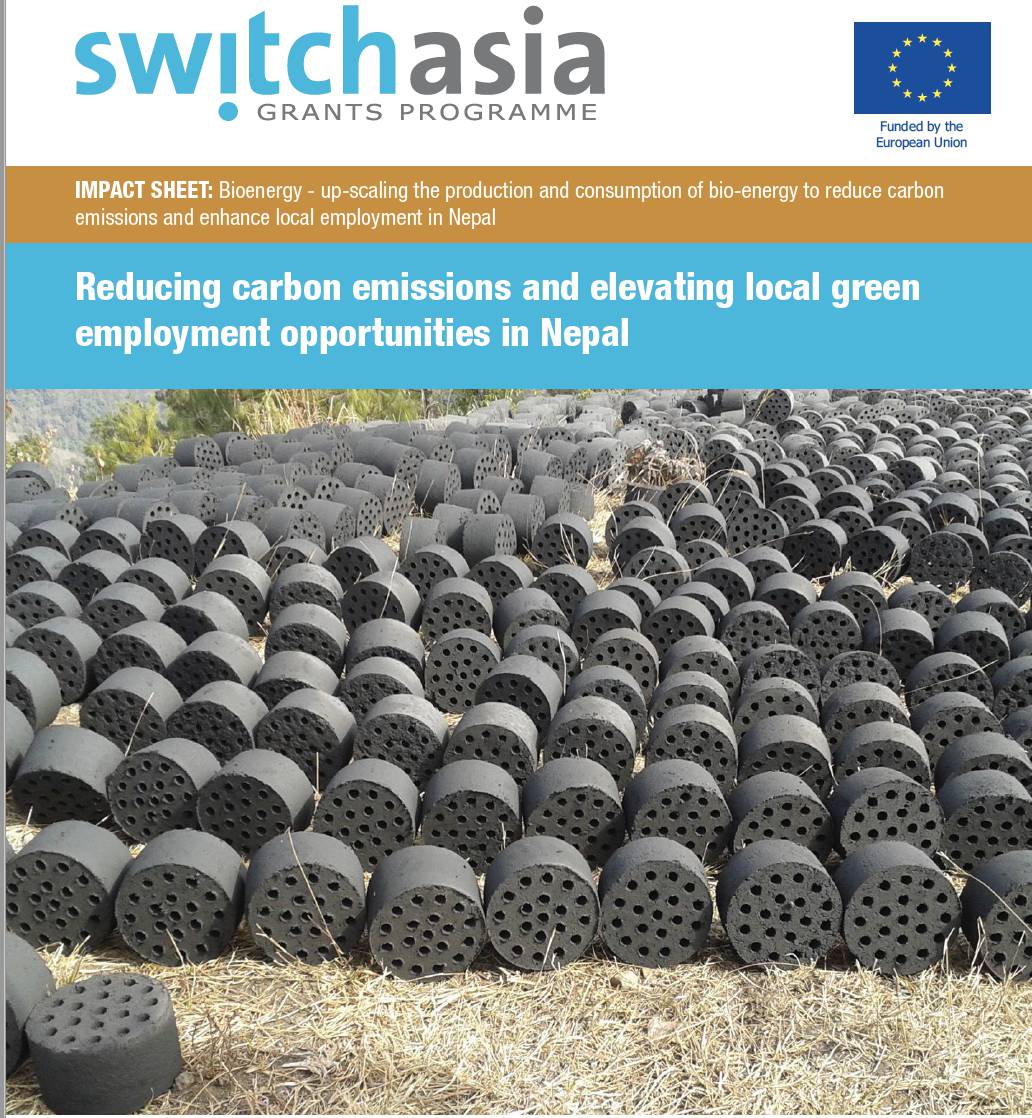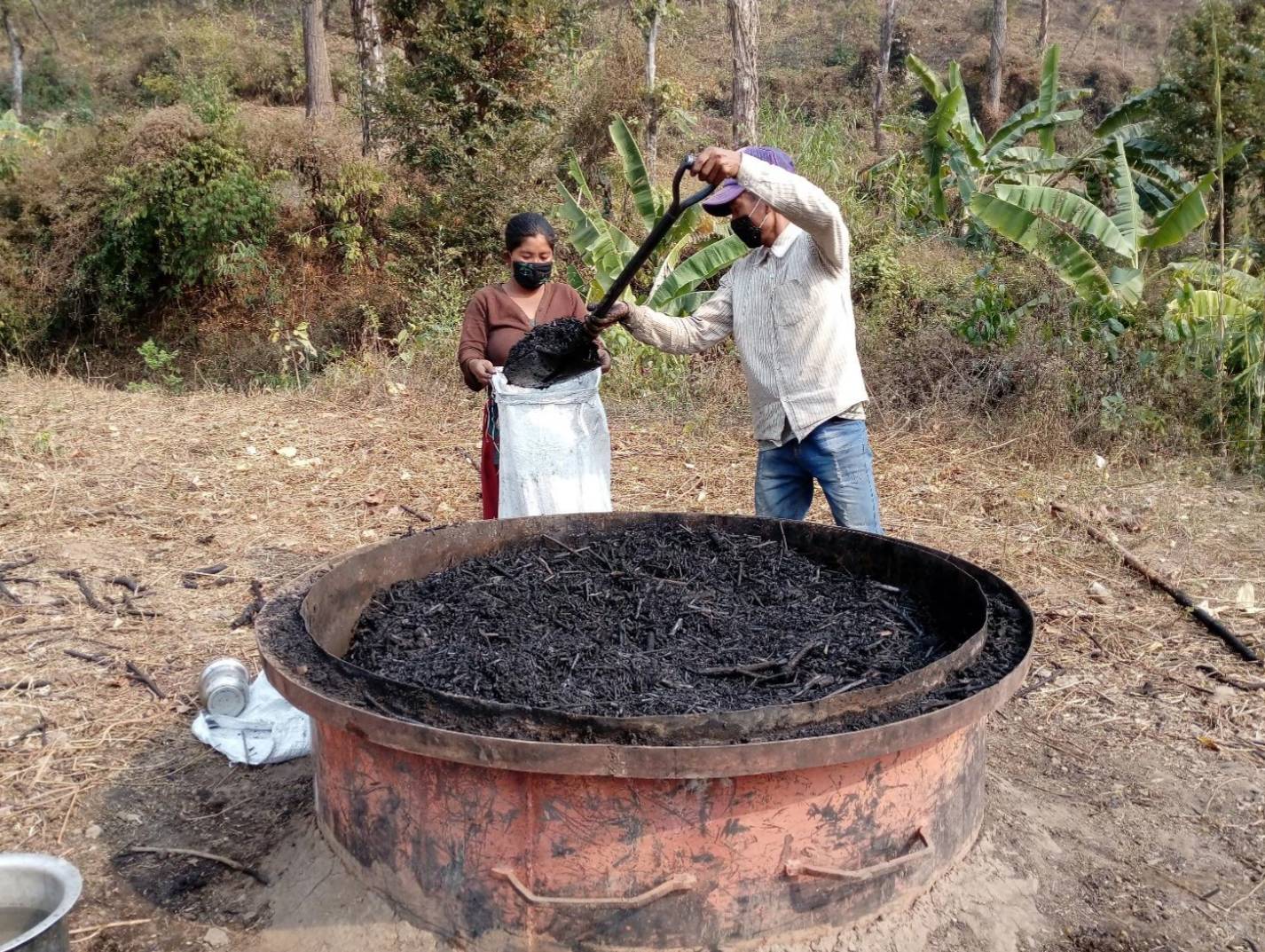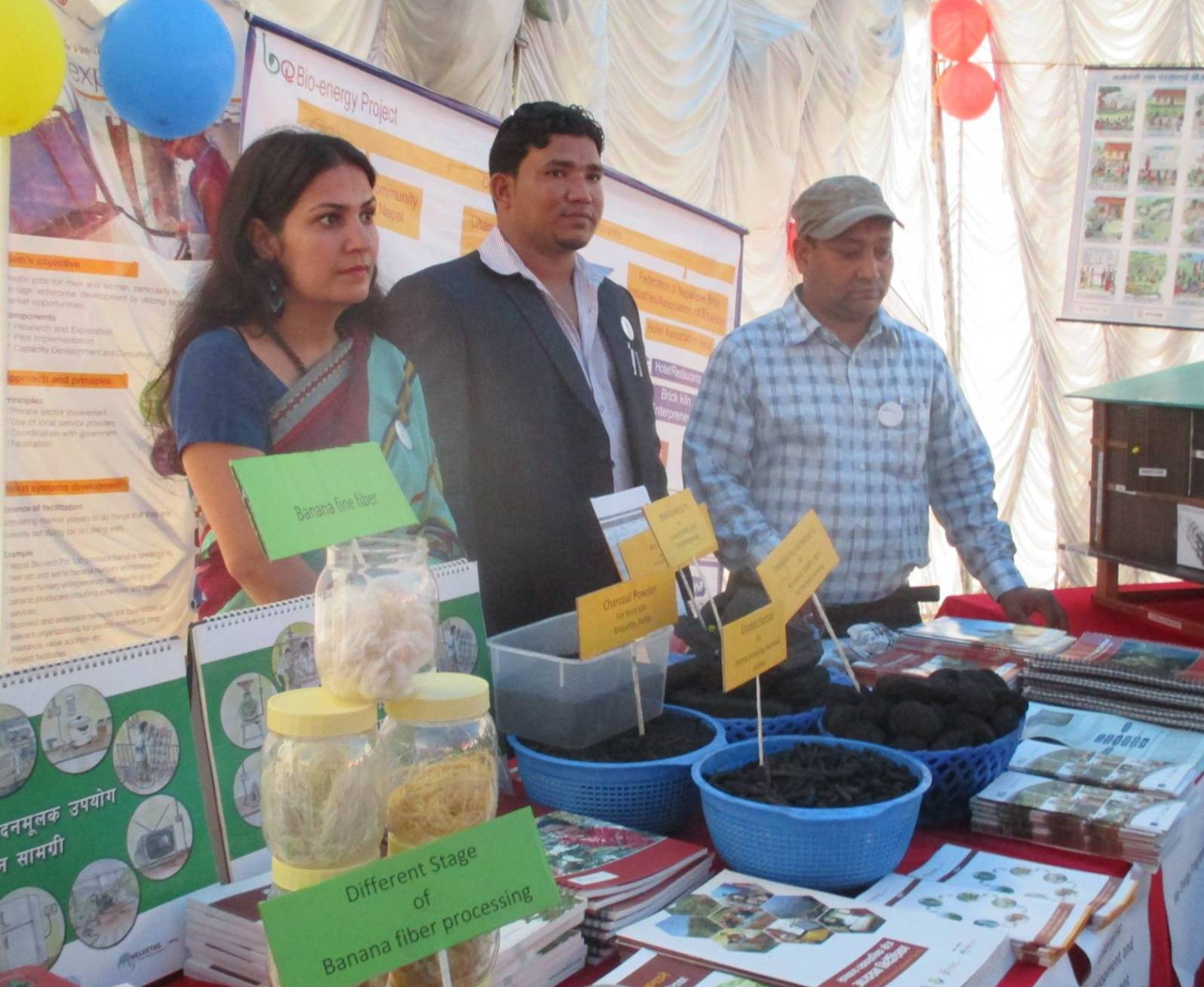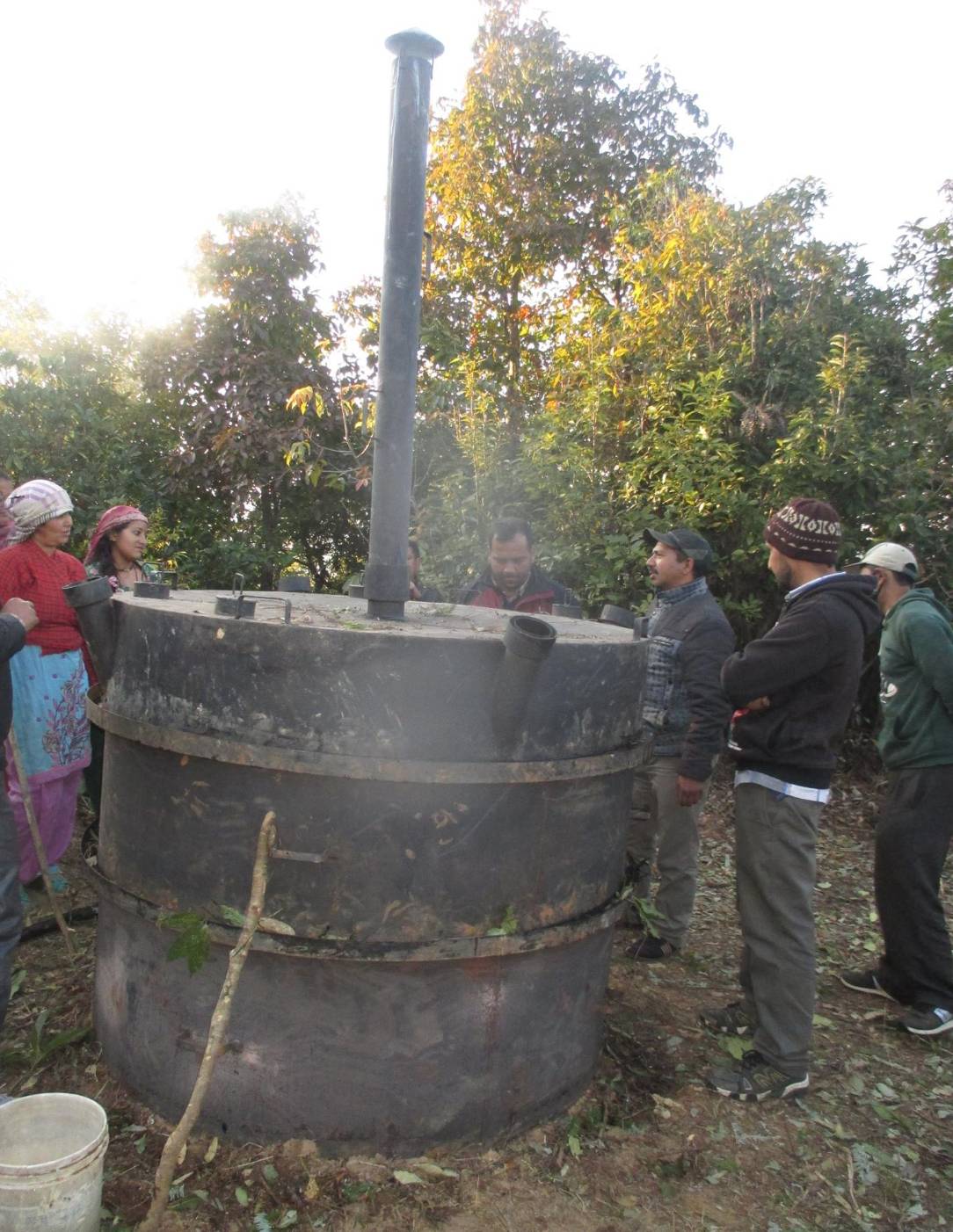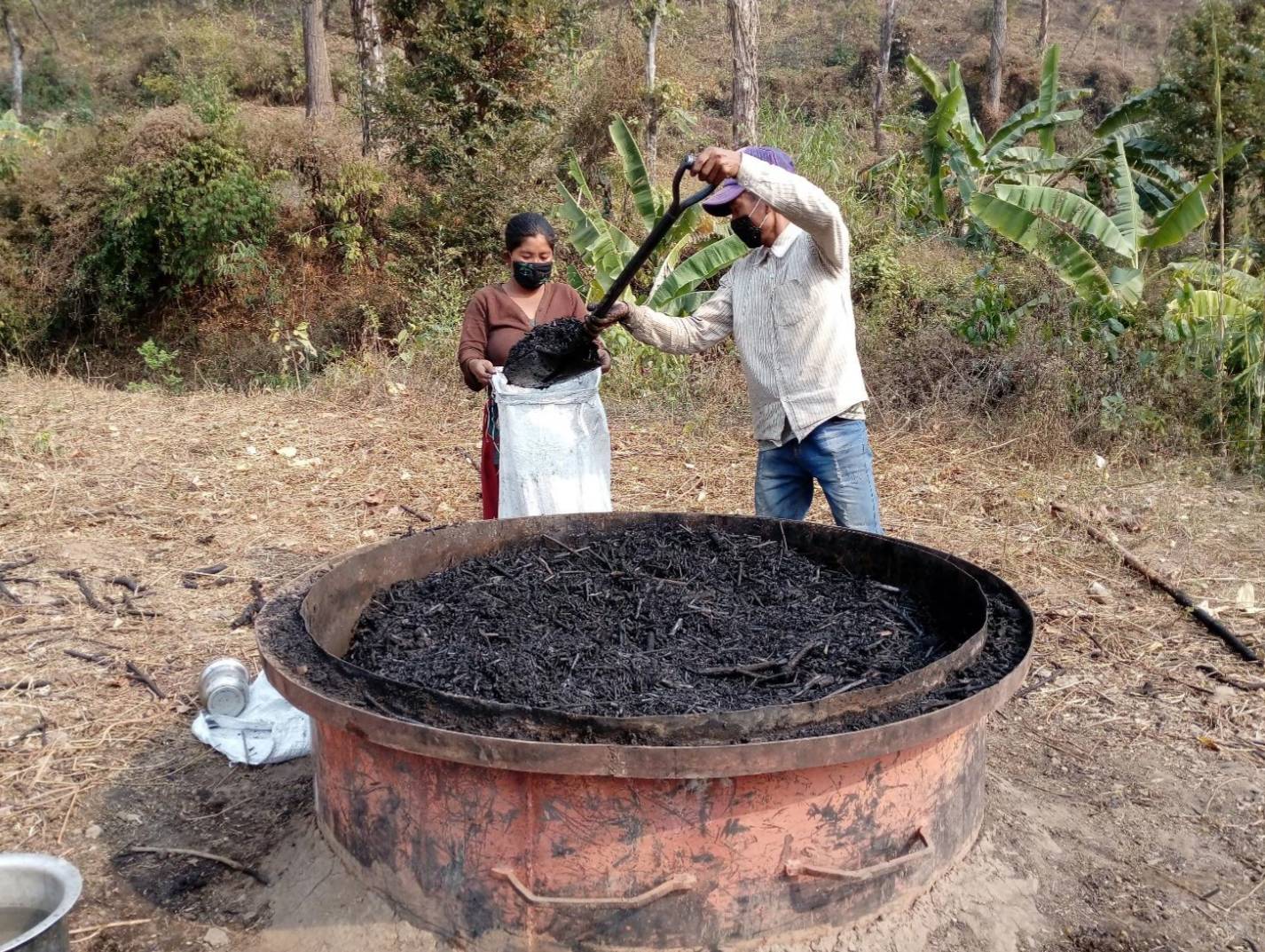
The Challenge
Nepal’s overall energy requirement for both domestic and industrial purposes increased substantially following rapid urbanisation and expansion of businesses, such as brick industries, hotels and restaurants. Unfortunately, these industries have relied heavily on imported fossil fuels (e.g. coal, LPG, kerosene, etc.), in spite of substantial increases in their prices. Fossil fuels cover more than 80% of Nepal’s imports, with approximately 10 billion tons of coal imported from India every year. Use of these fossil fuels also increases the emissions of greenhouse gases such as CO2. In addition, Nepal has witnessed an increasing number of forest fires due to the lack of responsible forest management. This has exacerbated existing environmental issues.
The Objectives
The project contributed to Nepal’s national poverty reduction and reduction of carbon emissions via up-scaling the production and industrial consumption of bioenergy. Specific objectives included:
- Increasing production and industrial consumption of bio-energy to meet the rising energy demand replacing environmentally hazardous fossil fuels;
- Increasing opportunities to create additional local employment through charcoal value chain;
- Reducing carbon emissions by reducing the import of kerosene and LPG;
- Improving sustainable forest management to help reduce fire hazards.
The Way Forward
- NRs. 500 million worth of transactions took place in the charcoal value chain;
- 589 enterprises were established and succeeded in producing 10,470 MT bio-charcoal by using 52,350 MT biomass from 111 community forests. The baseline study on biomass showed that the estimated mean shrub biomass in Cluster-1 (hill districts) was 6.37 MT/hectare, which was 12.87 MT/hectare in Cluster-2 (terai districts);
- NRs. 2,308,440 was provided as support (grant) by organisations as a result of the Bioenergy Project efforts. In addition, NRs. 10,634,080 worth of loans were facilitated by BDSPs, and NRs. 757,480 were provided by different cooperatives for buying charring kilns to start charcoal enterprises;
- The Bio-energy Entrepreneurs Association Nepal (BEAN) has been registered at the national level for conducting policy dialogues and creating an enabling environment to promote charcoal enterprises;
- 37 manufacturers/fabricators (two in Sindhupalchowk, one in Kavreplanchowk, three in Nuwakot, three in Dhadhing, five in Kailali, two in Bardiya, three in Banke, six in Kathmandu, six in Bhaktapur and six in Lalitpur districts) have been identified;
- The annual rate of charcoal production increased by 213% by 2017;
- The total charcoal production in 2014 was 111.26 MT; in 2015 it was 245 MT; in 2016 it was 2,449 MT; and 7,665 MT in 2017, supported by the Bioenergy Project.
Duration:
01/ 2014 - 12/ 2017Total Budget:
EUR 1,970,703 EU Contribution: 90%Lead Partners
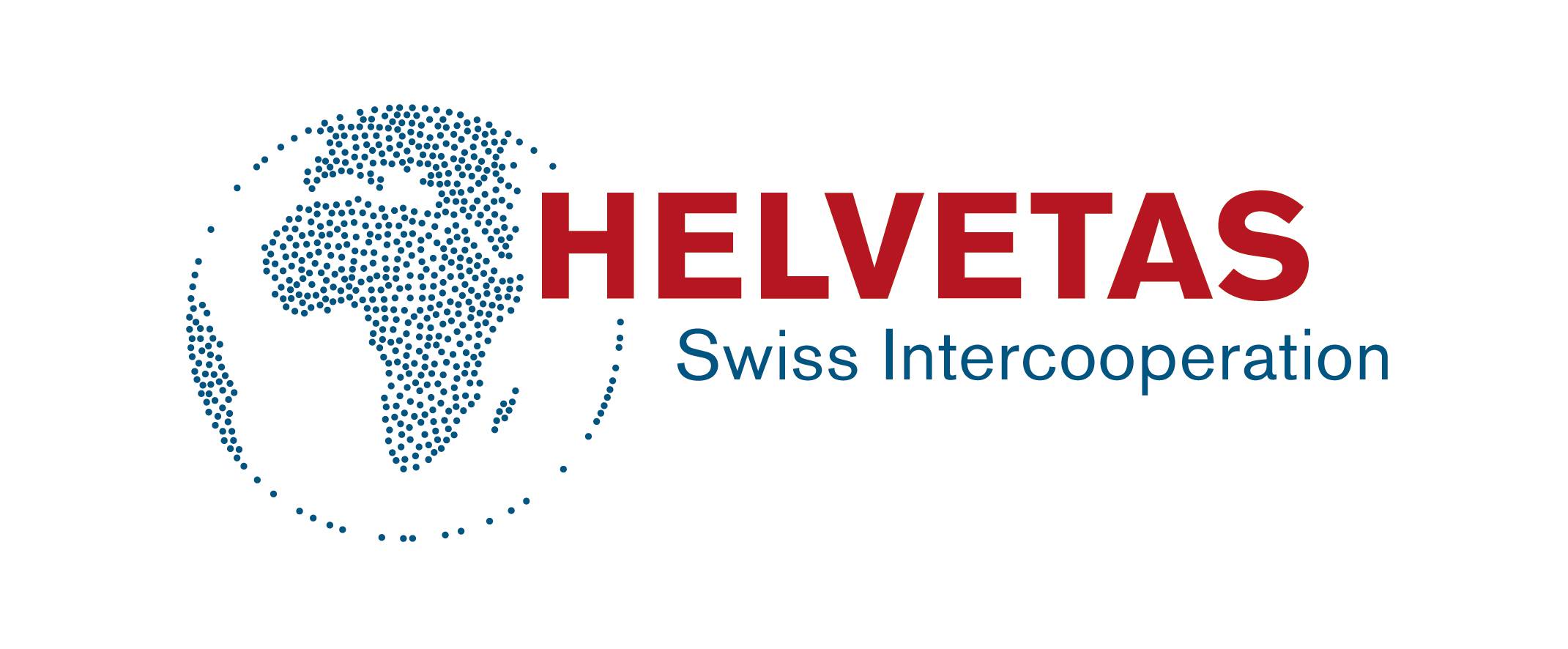
HELVETAS Swiss Intercooperation (HSI)
Partners

International Union for Conservation of Nature and Natural Resources (IUCN)
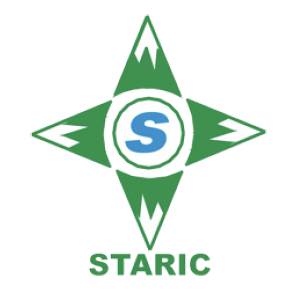
Sustainable Technology Adaptive Research & Implementation Center / Nepal (STARIC/N)


